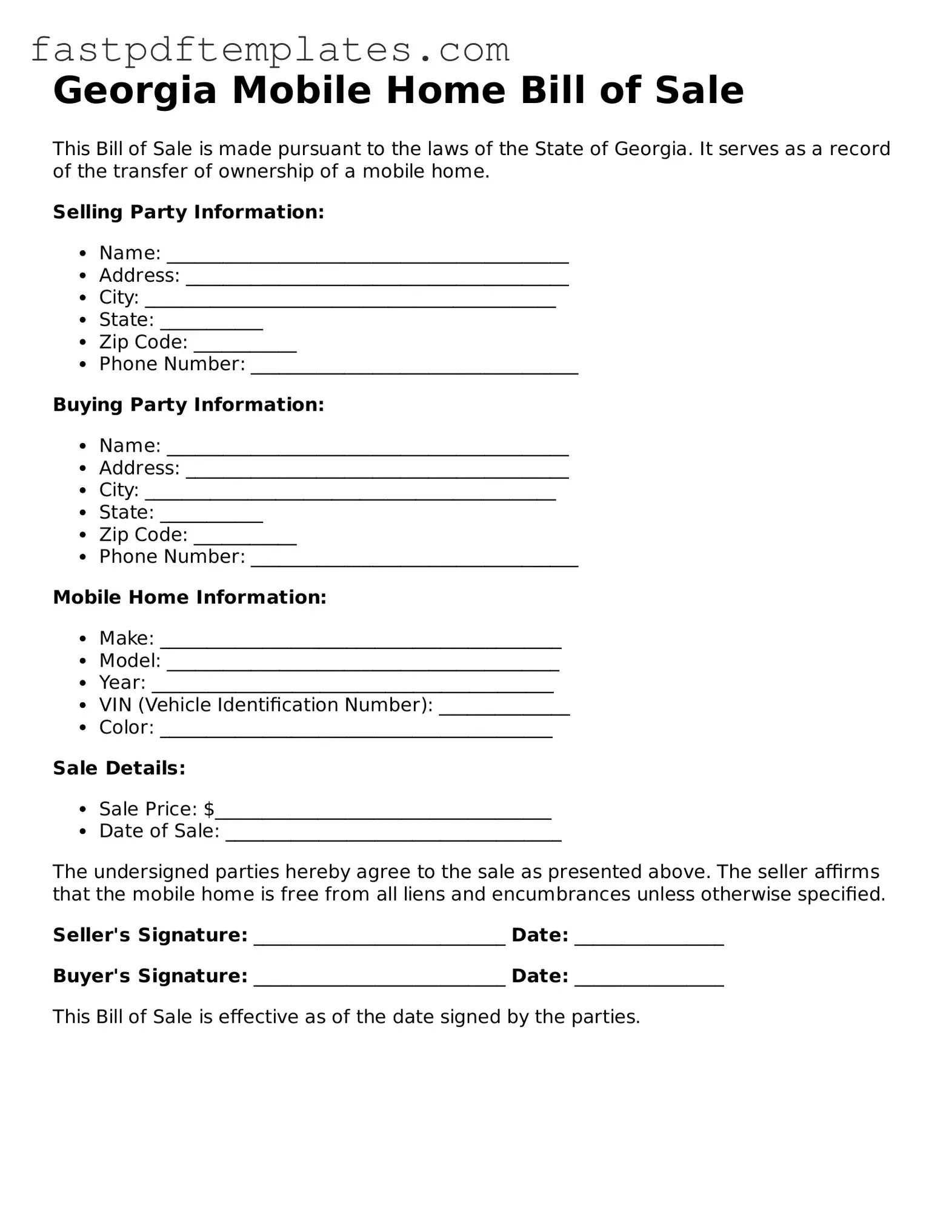The Georgia Vehicle Bill of Sale is similar to the Mobile Home Bill of Sale in that both documents serve as proof of a transaction involving personal property. When someone buys or sells a vehicle, this document outlines the details of the sale, including the buyer and seller’s information, the vehicle’s identification number, and the purchase price. Just like the Mobile Home Bill of Sale, it provides legal protection for both parties by documenting the transfer of ownership. Both forms are essential for registering the item with the appropriate authorities after the sale is completed.
The Georgia Boat Bill of Sale is another document that resembles the Mobile Home Bill of Sale. It is used when transferring ownership of a boat, similar to how the Mobile Home Bill of Sale is used for mobile homes. This document includes details such as the boat's make, model, and hull identification number, along with the buyer and seller’s information. Both forms ensure that the transaction is recorded properly and can help prevent disputes over ownership in the future.
The Georgia Trailer Bill of Sale shares similarities with the Mobile Home Bill of Sale as well. This document is used when a trailer changes hands, capturing important details about the trailer, including its identification number and condition. Like the Mobile Home Bill of Sale, it protects both the seller and the buyer by providing a clear record of the transaction. This can be crucial for registration purposes and for establishing ownership in case of any future legal issues.
The Georgia Firearm Bill of Sale is also comparable to the Mobile Home Bill of Sale. This document is specifically for the sale of firearms, outlining the details of the transaction, including the make, model, and serial number of the firearm. Both documents require the identification of the buyer and seller, ensuring that the transfer of ownership is documented. This helps to maintain accountability and legality in the sale of firearms, just as it does in the sale of mobile homes.
Lastly, the Georgia Personal Property Bill of Sale is similar to the Mobile Home Bill of Sale in that it can be used for various types of personal property transactions. This document is more general and can apply to items like furniture, electronics, or collectibles. It records the essential details of the sale, including the buyer and seller’s names and the description of the item sold. Like the Mobile Home Bill of Sale, it serves as a legal record of ownership transfer and can help resolve any potential disputes down the line.

